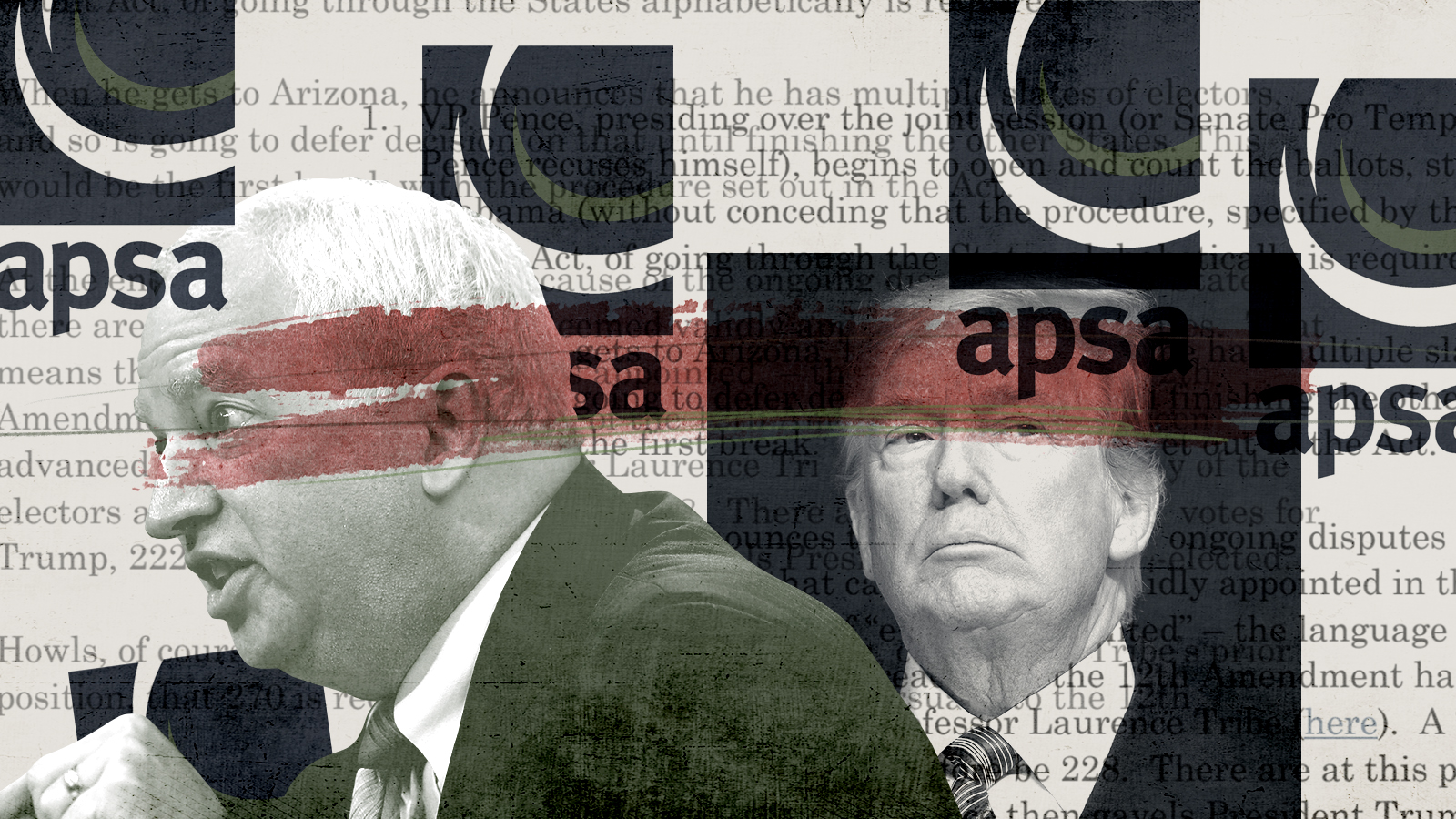An academic scuffle tests the limits of free debate


A free daily email with the biggest news stories of the day – and the best features from TheWeek.com
You are now subscribed
Your newsletter sign-up was successful
This year's annual American Political Science Association (APSA) meeting, scheduled to take place this weekend with a blend of in-person panels in Seattle and virtual events online, has stumbled into a controversy which exposes some of the deepest tension in liberalism.
The Claremont Institute — a right-wing think tank perhaps best known in the general public for its publication of the "Flight 93 election" essay in 2016 — has long organized well-attended panels at the APSA conference. But as Daniel Drezner notes in The Washington Post, this year, Claremont's slate of proposed panels raised hackles because two included John Eastman.
A member of the institute's board of directors and director of its Center for Constitutional Jurisprudence, Eastman is also the author of a notorious memo explaining how former President Donald Trump could launch a successful coup to overturn the results of the 2020 election and prevent President Biden taking office. Soon a letter of protest had been drafted and co-signed by more than 250 people, demanding Eastman's APSA membership be stripped and the Claremont Institute's status as an APSA-related group be rescinded and all its panels canceled.
The Week
Escape your echo chamber. Get the facts behind the news, plus analysis from multiple perspectives.

Sign up for The Week's Free Newsletters
From our morning news briefing to a weekly Good News Newsletter, get the best of The Week delivered directly to your inbox.
From our morning news briefing to a weekly Good News Newsletter, get the best of The Week delivered directly to your inbox.
In the end, APSA managed to avoid deciding how to respond to the petition by turning Claremont's in-person panels into virtual events, precluding real-world protests and unrest during a pandemic. This prompted the institute to back out of the conference in a huff.
But that doesn't mean the issues raised by the controversy have been resolved. Far from it. In fact, whether Eastman's panels had gone forward or the institute had been banned from APSA, the petition exposed tensions very close to the core of liberal political theory.
Liberalism stands for the free and open society. But does that mean it must make space for those who would destroy the free and open society? If the answer is yes, liberalism would seem to have a death wish. If the answer is no, liberalism looks hypocritical: Oh, so you're for open debate, but only if everyone debating is a liberal! There really is no way to resolve this tension except to say that liberalism favors a free and open society, but not without limits. It can tolerate disagreement and dissent, but not infinitely. And writing a memo to the president explaining precisely how he could mount a coup that would overturn liberal democratic government in the United States crosses that line.
APSA was able to skirt the tension within liberalism this time. But next time — and given the Claremont Institute's drift toward outright authoritarianism, there almost certainly will be a next time — avoiding the dilemma with a line-fudging semi-cancellation might not be possible.
A free daily email with the biggest news stories of the day – and the best features from TheWeek.com
Damon Linker is a senior correspondent at TheWeek.com. He is also a former contributing editor at The New Republic and the author of The Theocons and The Religious Test.
